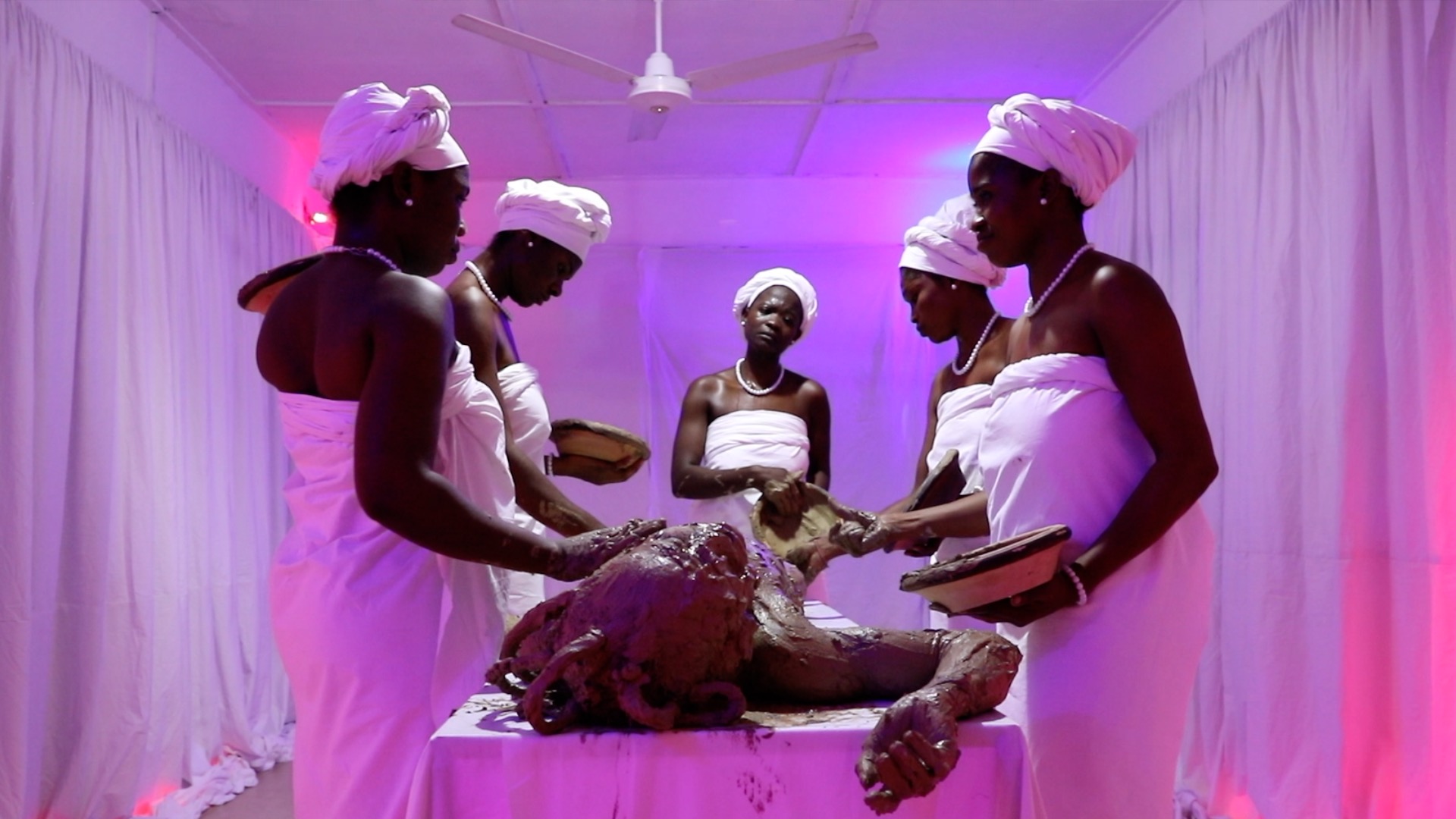By Alessia D’Introno
Va-Bene Elikem Fiatsi, also known as crazinisT artisT is one of the most daring and revolutionary voices in the Ghanaian contemporary art scene. With the pronouns sHit if not She, she subverts the contradictions of language and denounces how the homophobic colonial legacy has reinforced the perception of queer people as disgusting.An internationally renowned artivist, her work stands out for its intense fusion of performance, activism and the construction of safe spaces for the queer and trans community. Through art, she not only tells stories of resistance and identity, but also openly challenges oppressive structures, turning her work into a political act. Fiatsi creates in her performances an experience that transcends the simple artistic act, immersing the audience in a visceral and immediate interaction. The tangible elements of live performance, such as the immersive atmosphere and direct connection between artist and spectator, create a unique feeling of connection and deep energy. Each of her performances is an invitation to enter a complex world of suffering, self-acceptance and rediscovery. She does not just ‘show’ but creates a space in which the audience can recognise themselves and confront their taboos. In a way, it acts as a mirror. It can arouse empathy or provoke unease, forcing the spectator to confront his or her own emotions and the contradictions of contemporary society.
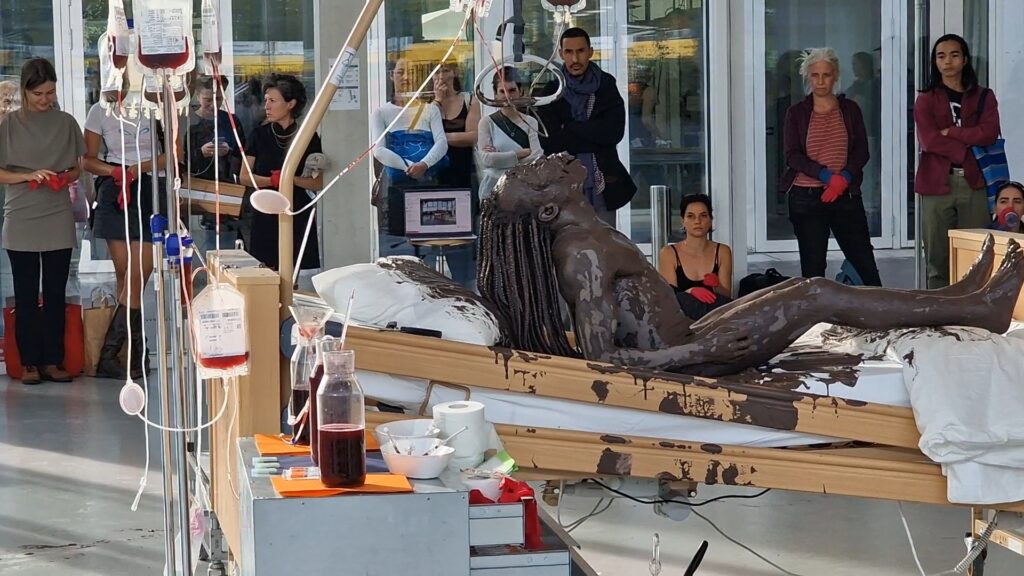
One of the most emblematic examples of her engagement is the exhibition MANIFESTATION #43 (WHERE AND FOR WHOM?) LISTENING TO THE ABSENCES, recently presented at the Buro Stedelijk gallery. In Sacred Wounds (2024), Fiatsi presents a performance that becomes a profound exploration of her own queer identity. This intimate ritual recounts the transformative journey of a person waiting to become who she is meant to be, a journey of self-discovery and acceptance of her own vulnerabilities. It is a journey of unlearning and relearning, as we challenge ingrained beliefs and forge our own narratives. In this process, we navigate through a landscape of vulnerability, exposing our innermost selves, and allowing ourselves to be seen and heard1.
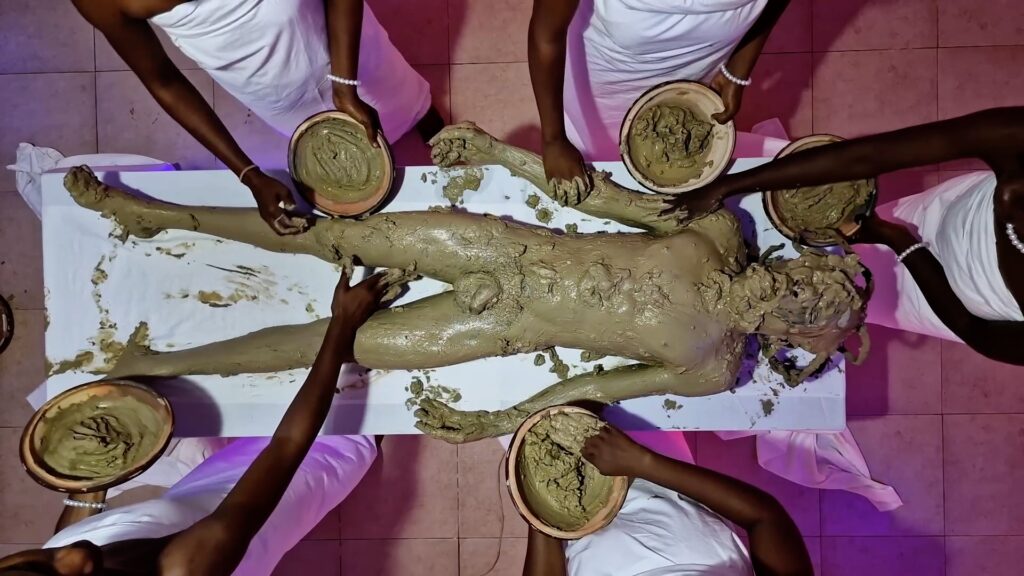
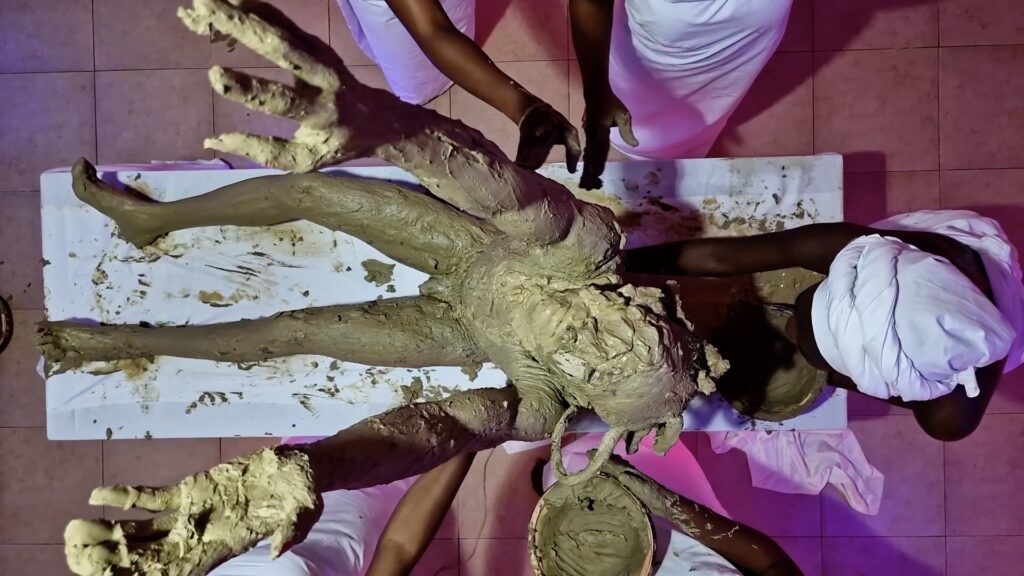
The documentary Home is Resistance (2024) chronicles the birth and evolution of PerfocraZe International Artist Residency (pIAR), an initiative founded and directed by Fiatsi in Kumasi. More than just an art residency, pIAR is a sanctuary of love, a courageous space, a safe haven and a stronghold of defence. It functions as a meeting place where people can come together, create, connect and find solace, in the words of the founder. It is the first and only art space in Ghana openly run by a trans person, a cultural laboratory and tool for connection and social change. Since 2018, pIAR has hosted over 160 artists from more than 25 countries, creating an environment of experimentation and collaboration that transcends the boundaries of traditional art. The documentary Home is Resistance takes viewers inside this unique environment, offering an intimate perspective on its mutative impact. For the artivist, art is not just expression, but an act of responsibility and care towards the community: I think the entire presentation of my work the reveals the complexities of our artistic creation meant for the people we are, live with, care for, and our resistance in relation to where we are coming from to whom we create the interventions for.
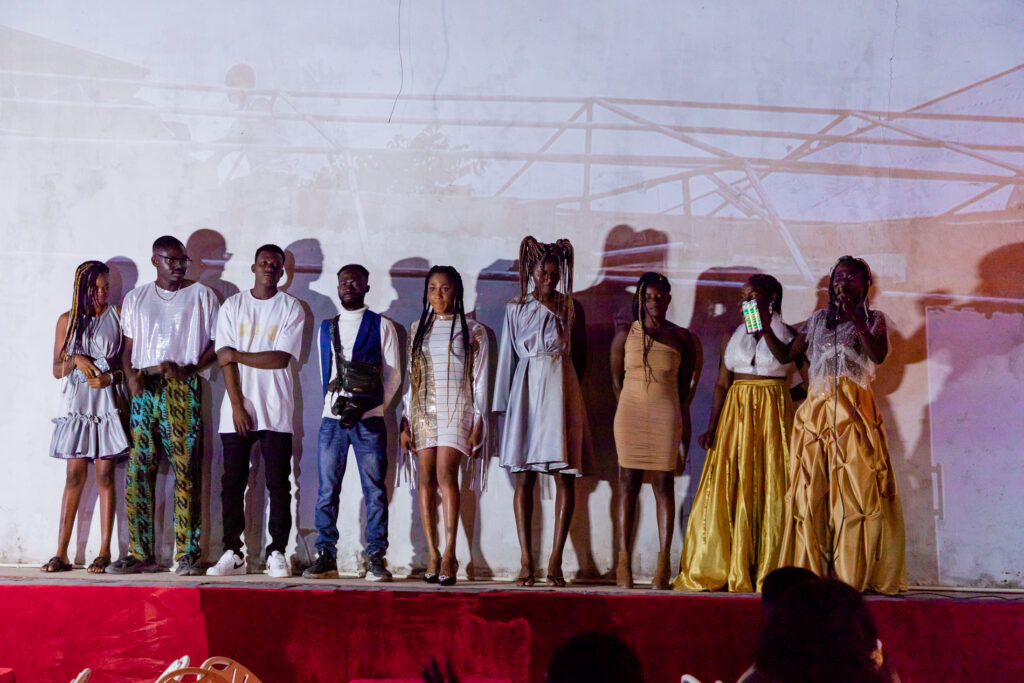
Fiatsi’s commitment takes on even more urgent significance in the context of the recently proposed anti-LGBTQIA+ bill in Ghana, a measure that, if passed, could impose prison sentences on anyone who is considered homosexual or publicly supports the rights of the queer community. This law, supported by a religious and political coalition, represents not only an attack on human rights, but also a political strategy that exploits the vulnerability of the LGBTQIA+ community to consolidate power and consensus. In response to this growing repression, the artist blends her own past as a preacher to reconfigure Christian narratives and dialogue with audiences on familiar ground, overturning religious dogma into a message of inclusion. Her work is a direct action against systemic discrimination. In her performances she uses Christian symbolism and narratives to communicate with the audience. The fact that I was a preacher many years ago is inseparable from who I am and the work that I do as an artist today. That’s why I now call myself an artvangelist. Among the works we remember, in Holier-Than-Thou (2021), Fiatsi stages a symbolic crucifixion on Good Friday, subverting the dominant Christian narrative to denounce the growing violence against queer people in Ghana. The performance becomes a ritual of memory and justice, a call to reflect on the role of religion in fueling discrimination and oppression. With her exposed and vulnerable body, Fiatsi calls for collective responsibility, transforming suffering into an act of resistance and unconditional love.
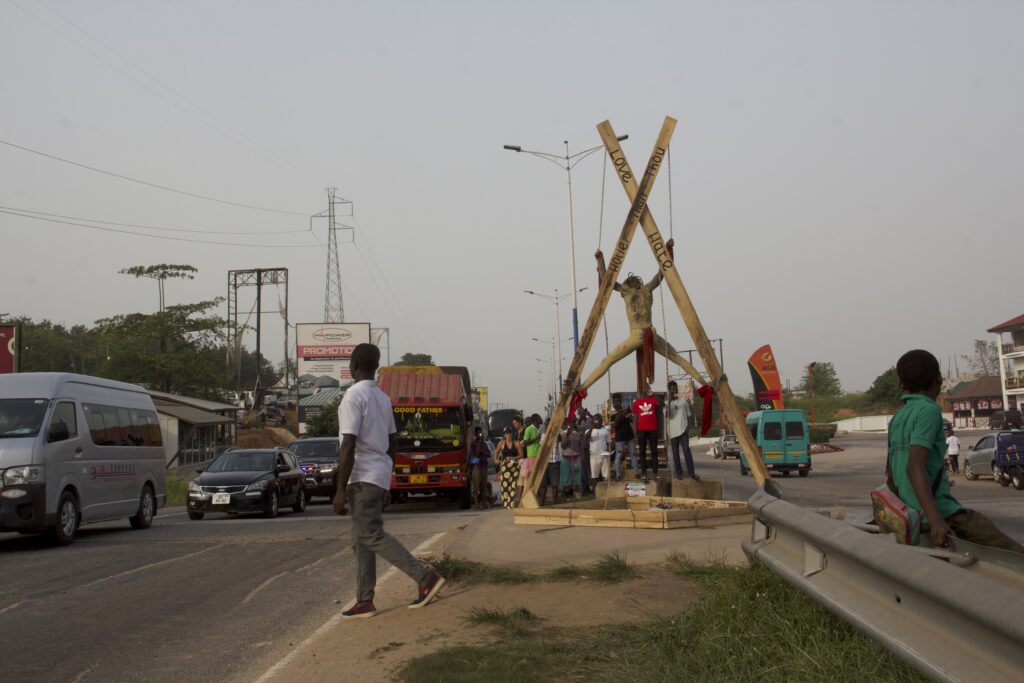
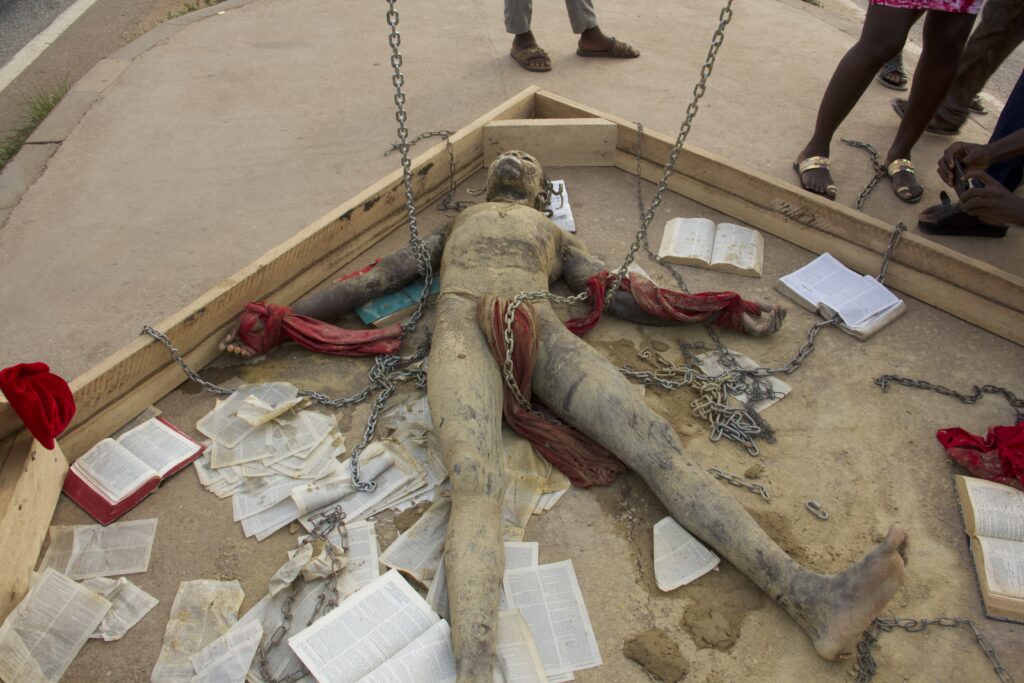
In this context of increasing repression, Love fEAST, the annual event organised by pIAR, takes on even greater significance. Now in its seventh year, the festival was held last January and celebrated the values of hospitality, welcome and mutual support, aiming to create a solid and supportive bond between artists, families and communities. During the event, those who have made a significant impact in Ghana’s arts, culture and politics were honoured, highlighting the value of those who contribute to change and growth in society. In addition, the event introduced the new members of the 2025 arts residency, providing a platform for sharing stories and creating new collaborations. Between dinners, performances and artistic interventions, Love fEAST has become a symbol of rebirth, solidarity and unconditional love, an opportunity to build bridges between different realities and cultures, creating a place where the community feels seen, heard and valued.
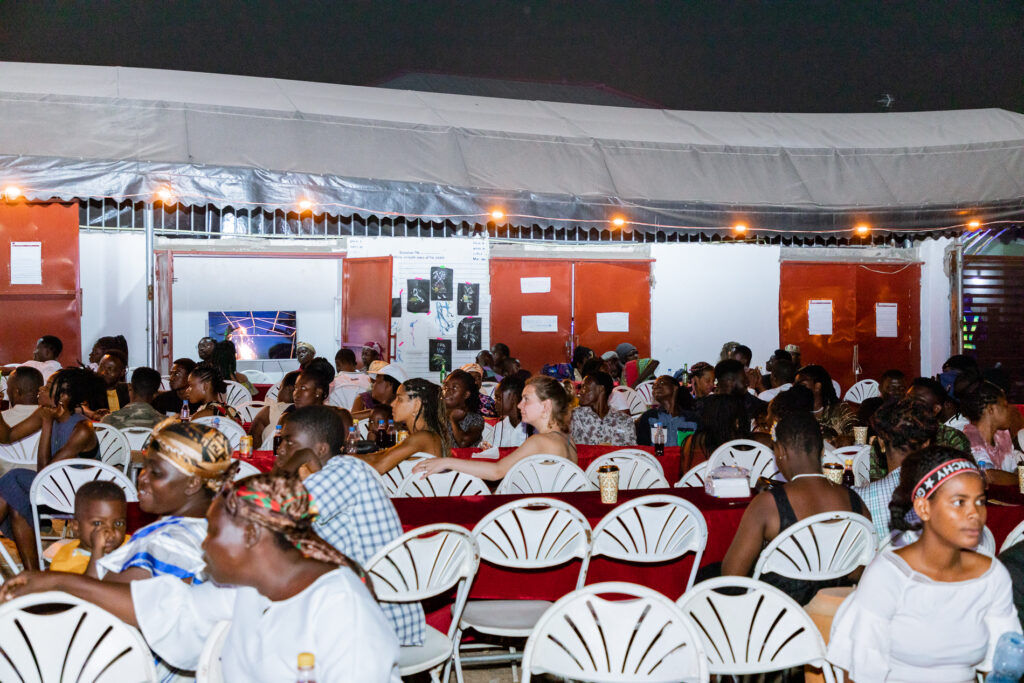
This commitment led her to recently receive the Prince Claus Impact Award, one of the most prestigious awards in the field of art and social change. The award, given to artists and activists who use culture as a tool for justice and resistance, confirms the importance of her work on a global scale. But what does it mean to make art today in a context of increasing repression? How does one build an artistic community under the constant threat of criminalisation? In this interview, Va-Bene artist Elikem Fiatsi shares her vision, her journey and her struggle.
Let’s start from the prize. What does receiving the Prince Claus Impact Award mean to you?
The Prince Claus Award has not only increased my visibility and recognition, but it has also given me and younger queer artists the confidence to trust the process of our resistance and to persevere. I have invested the award money into purchasing land to build the crazinisT artisT compleX, which will provide a space for a residency and many other projects.
What are the pIAR goals? How has it evolved?
This residency has become a laboratory and sanctuary, empowering the queer community to find a collective voice and expand its visibility in the Ghanaian art scene. It not only fosters exchange between local and international artists but also strengthens the queer community.
Which pIAR recent projects have had a significant impact on local and international art?
The Love fEAST project has nurtured solidarity and allyship, changing local perceptions and realities as a bridge between art and life, and the community and the so called Ghanaian families. Additionally, the residency activities have significantly impacted both local and international art scenes by creating numerous networks and collaborations that encourage individuals to explore new possibilities beyond their usual boundaries.
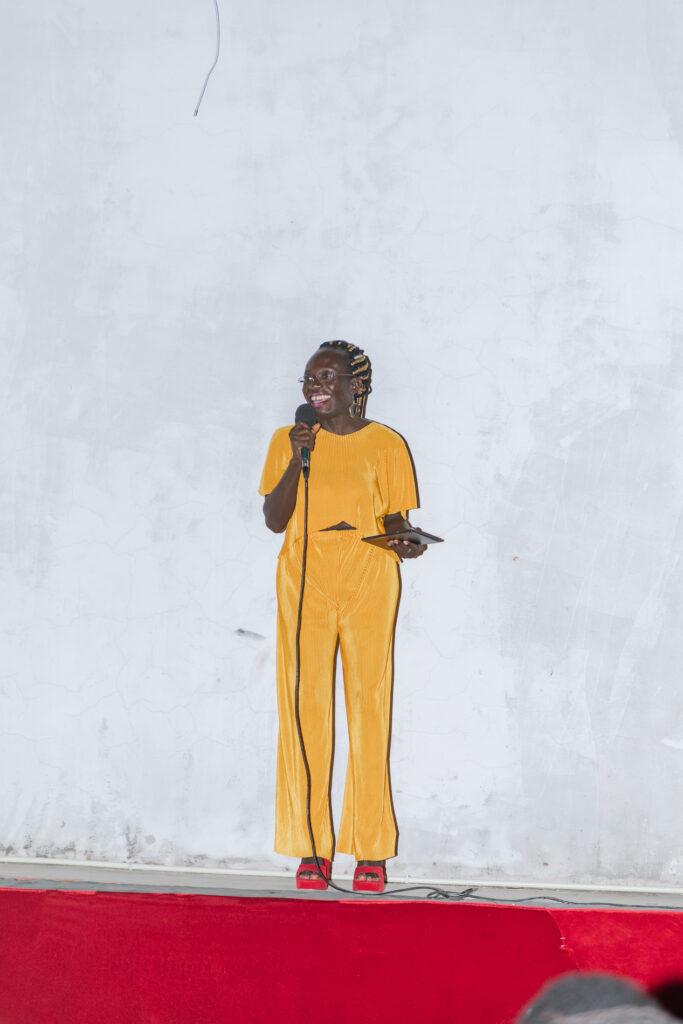
How have your works influenced the perception of the LGBTQIA+ community?
It is a great honor to be referred to as a mother, queen mother, mentor and an inspiration by many in the queer community and even outside of it. To me, this signifies that they have found the confidence and courage to live authentically and resist oppression. It is a manifestation that we are here and have always been here.
Talking about your performances, in an interview you said that when you exposed on the international scene, you have been defined as a performative artist. How would you define yourself, instead?
Had I not had academic knowledge of performance art, I would have described myself as a resistor, a healer, and a manifestor. I only came to reclaim the label performance art not because it best defined me but the lack of better categorisations. This is true not only now that I am internationally known, but even as an undergraduate, when my work was labeled as performance art. At the time, I was simply interested in creating a series of interventions or live actions that could provoke reflection on unspoken lived experiences and daily vulnerabilities that have even been ignored in academic spaces.
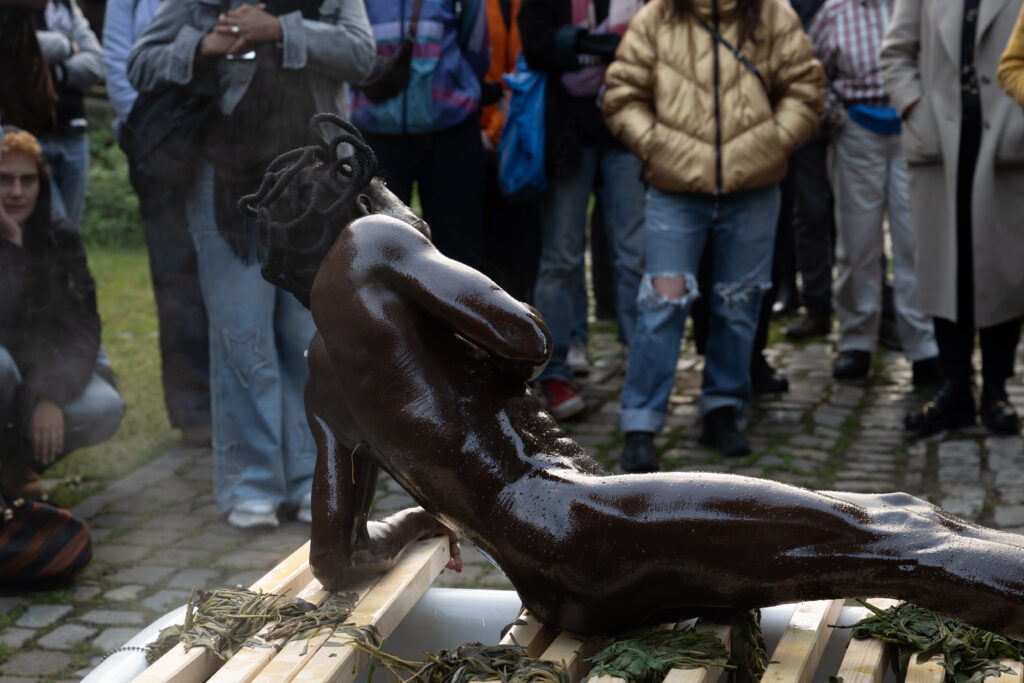
In your work how important is the physical and public space?
The physical and public spheres not only expose our realities and the horrors we face, but also foster empathy, solidarity, and visibility. These urgent issues provoked me to remove my body from the canvas and the safety of my studio by placing myself directly to the streets, markets, and other public spaces, despite the risks and dangers associated with such a radical act.
Do you think that the use of strong Christian symbols like a denunciation against violence caused by ignorance and prejudice, amplifies a message of resilience and healing?
In Ghana using christian symbols is like speaking the language of the people. Colonialism in Africa included the imposition of Western religions, like Christianity. This has contributed to the oppression of marginalized groups, as seen in the anti-LGBTQIA+ bill proposed and supported by Christians which tears families apart. To effectively communicate with those who use religion to justify discrimination, genocides and other forms of human right violations, it is necessary to reclaim and subvert Christian symbols, portraying Christ as Black, trans, queer, or a woman in itself is an act and art of resistance and a protest. I will call it is part of my artvangelism

What are the most common reactions from the audience during your performances? Have you ever noticed curiosity or fear or hostility?
My audience’s reactions to my work are varied and complex, including hostility, empathy, curiosity, and aggression. Often, the audience becomes divided, engaging in arguments and disagreements with each other. While some may be provoked and consider my work blasphemous or anti-Christ, others can relate to the message. It’s a double-edged sword that affects us all.
What are you working on right now?
I’m currently juggling multiple international projects, and I’m diligently saving my earnings to build this complex. This is crucial given the proposed bill that threatens to imprison landlords who rent their properties to queer individuals.
Va-Bene Elikem Fiatsi (aka crazinisT artisT) was born in 1981 in Ho, Ghana, and uses the pronoun sHit if not She. Va-Bene currently lives in Kumasi, Ghana but works internationally as a multidisciplinary “artivist”, curator, philanthropist and a mentor across several countries. She is the founder and artistic director of crazinisT artisT studiO (TTO), Our Railway Cinema Gallery (ORCG) and perfocraZe International Artists Residency (pIAR) which aimed at radicalising the arts and promoting exchange between international and local artists, activists, researchers, curators, and critical thinkers. As a performer and installation artist, crazinisT investigates gender stereotypes, prejudices, queerness, identity politics and conflicts, sexual stigma and their consequences for marginalised groups or individuals. With rituals and a gender-fluid persona, She employs her own body as a thought-provoking tool in performances, photography, video, and installations, ‘life-and-live-art’ confronting issues such as disenfranchisement, injustice, violence, objectification, internalised oppression, anti blackness, systemic indoctrination and many more
- https://burostedelijk.nl/2024/11/19/sacred-wounds-2024/ ↩︎
Open Letter to the President of Ghana
Traslation by Luigina D’Introno
Alessia D’Introno has a Master’s Degree in Visual arts and Curatorial Studies, NABA, Milan. She has written several articles in Juliet Art Magazine and Artslife.
Her critical work focuses on the demolition of historical paradigms to which Italy and Europe have been linked for centuries. The de-colonial practice of her research develops a confrontation and openness to new curatorial methodologies and possibilities.

